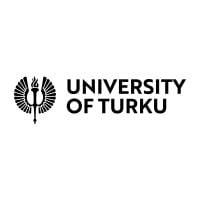Doctoral researcher /project researcher in Fungal Biology: Dormancy Behaviour in Chytrid Parasites
Position Details (PhD Research Project)
The Faculty of Science at the University of Turku invites applications for contract-based, fixed termdoctoral researcher / project researcher position at the Department of Biology, for three years. The preferred employment start date is 2.1.2026, but we welcome applications from candidates who may need a later starting date.
Chytrids are microscopic fungi and widespread parasites of phytoplankton in freshwater and marine environments. By infecting and killing their hosts, they exert a profound influence on phytoplankton blooms, thereby impacting key processes in aquatic ecosystems. Chytrids show seasonal epidemic outbreaks, but how these infection cycles are initiated each year remains unclear. A critical yet understudied aspect of their life cycle is how the parasite survives when hosts are absent or scarce. The FUNLIFE project hypothesizes that dormancy, the formation of long-lived resting spores acting as microbial “seed banks”, enables chytrids to persist between bloom events. This dormant stage is likely central to understanding recurrent chytrid infections, yet it remains poorly understood.
The Doctoral researcher/ project researcher will address this knowledge gap by focusing on dormancy and resting spore biology, investigating how temperature and oxygen regulate dormancy, germination, and infection potential, and exploring the molecular mechanisms behind these processes. Research will combine laboratory experiments, microscopy, and molecular analyses using established freshwater and marine chytrid–phytoplankton systems, with results linked to broader ecological insights through collaborations with experts in chytrid ecology, molecular biology, and modelling.
Understanding these processes is particularly relevant under environmental change. Rising water temperatures, increasing oxygen depletion in sediments, and shifting nutrient levels are altering aquatic ecosystems worldwide. This project will reveal how such changes influence chytrid survival and reactivation, shedding light on their ecological role, epidemic dynamics, and potential responses to climate-driven shifts.
Job description
The doctoral researcher / project researcher will:
- Design and conduct controlled laboratory experiments on resting spore formation, and germination under varying temperature and oxygen conditions with chytrid–host culture systems.
- Quantify spore survival, germination frequency, and infection potential using microscopy and infection assays.
- Perform time-lapse imaging to characterise phenotypic transitions during dormancy and germination.
- Conduct RNA sequencing and bioinformatic analyses to identify gene expression patterns and molecular pathways associated with dormancy regulation.
- Collaborate closely with the project PI and supervisor Dr. Silke Van den Wyngaert and co-supervisor Dr. Maliheh Mehrshad on experimental design and transcriptomic data interpretation.
- Present research findings at national and international conferences and publish results in peer-reviewed journals.



 University of Turku
University of Turku 